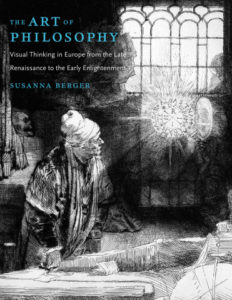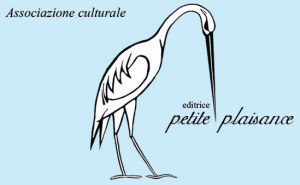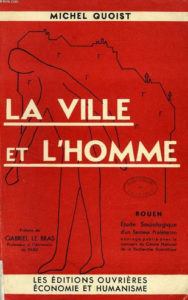Susanna Berger – The Art of Philosophy: Visual Thinking in Europe from the Late Renaissance to the Early Enlightenment

Susanna Berger
The Art of Philosophy:
Visual Thinking in Europe from the Late Renaissance to the Early Enlightenment
Princeton University Press, Princeton e Oxford 2017, pp. 315
The first book to explore the role of images in philosophical thought and teaching in the early modern period
Delving into the intersections between artistic images and philosophical knowledge in Europe from the late sixteenth to the early eighteenth centuries, The Art of Philosophy shows that the making and study of visual art functioned as important methods of philosophical thinking and instruction. From frontispieces of books to monumental prints created by philosophers in collaboration with renowned artists, Susanna Berger examines visual representations of philosophy and overturns prevailing assumptions about the limited function of the visual in European intellectual history.
Rather than merely illustrating already existing philosophical concepts, visual images generated new knowledge for both Aristotelian thinkers and anti-Aristotelians, such as Descartes and Hobbes. Printmaking and drawing played a decisive role in discoveries that led to a move away from the authority of Aristotle in the seventeenth century. Berger interprets visual art from printed books, student lecture notebooks, alba amicorum (friendship albums), broadsides, and paintings, and examines the work of such artists as Pietro Testa, Léonard Gaultier, Abraham Bosse, Dürer, and Rembrandt. In particular, she focuses on the rise and decline of the “plural image,” a genre that was popular among early modern philosophers. Plural images brought multiple images together on the same page, often in order to visualize systems of logic, metaphysics, natural philosophy, or moral philosophy.
Featuring previously unpublished prints and drawings from the early modern period and lavish gatefolds, The Art of Philosophy reveals the essential connections between visual commentary and philosophical thought.
Susanna Berger
is assistant professor of art history at the University of Southern California.
Si può accedere ad ogni singola pagina pubblicata aprendo il file word
![]() Indice completo delle pagine pubblicate (ordine alfabetico per autore al 04-12-2018)
Indice completo delle pagine pubblicate (ordine alfabetico per autore al 04-12-2018)
N.B. Le immagini e i video sono stati reperiti nel web e quindi considerati di pubblico dominio. Qualora si ritenesse che possano violare diritti di terzi, si prega di scrivere al seguente indirizzo: info@petiteplaisance.it, e saranno immediatamente rimossi.
***********************************************
Seguici sul sito web




